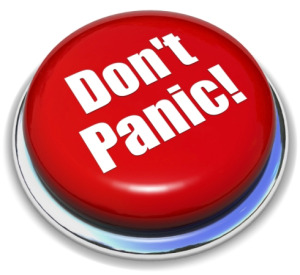 This question gets asked by readers a lot here at Indies Unlimited: How can I protect my manuscript from being taken by someone I let read it? And as common as the question is, it’s an easy answer: you can’t.
This question gets asked by readers a lot here at Indies Unlimited: How can I protect my manuscript from being taken by someone I let read it? And as common as the question is, it’s an easy answer: you can’t.
That’s not the answer most people want to hear, but Indies Unlimited is an “Alternative Facts Free Zone,” so only the truth appears here. And the truth is, you really can’t stop someone from doing unauthorized things with a document you give them.
The good news is that most people don’t do untoward things with your document. Most people do what was asked: read your manuscript and then either provide you feedback or write a review. However, occasionally, an unscrupulous person may share your book. Like I said, there’s really no way to stop someone who wants to do wrong with your file, if they have it.
While you can’t guarantee anything, there are some things that people do to try to prevent readers from sharing their work, taking credit for their work, or uploading it to pirated book sites. Here are a few: Continue reading “How Can Authors Protect Their Works in Progress?”

 While taking a short break from obsessively Googling your name and checking your KDP dashboard, you wander over to search for your book on Amazon. Imagine your surprise when – gasp – you see two listings. Or three listings. Or even more! Someone named IHeartBooks is selling your paperback on Amazon! Not only that, but – horror of horrors – they’re charging more than you are. Or maybe less than you are. Or maybe you’re one of those authors who’s stumbled across a copy of your paperback selling on Amazon for $6,789 or some such outrageous price.
While taking a short break from obsessively Googling your name and checking your KDP dashboard, you wander over to search for your book on Amazon. Imagine your surprise when – gasp – you see two listings. Or three listings. Or even more! Someone named IHeartBooks is selling your paperback on Amazon! Not only that, but – horror of horrors – they’re charging more than you are. Or maybe less than you are. Or maybe you’re one of those authors who’s stumbled across a copy of your paperback selling on Amazon for $6,789 or some such outrageous price. My understanding is that when an author publishes a book on Amazon that there is a box, pre-checked for your convenience, to elect putting DRM or Digital Rights Management on your book. I’ve also heard that once you say yes, you’re stuck with your choice. I’m going to argue that the best choice is to unclick that box. But first, the case for sticking with the default.
My understanding is that when an author publishes a book on Amazon that there is a box, pre-checked for your convenience, to elect putting DRM or Digital Rights Management on your book. I’ve also heard that once you say yes, you’re stuck with your choice. I’m going to argue that the best choice is to unclick that box. But first, the case for sticking with the default.